After much debate, Bill 89 was passed last night, and with its support of the Honolulu mayor, will soon remove thousands of Hawaii vacation rentals on Oahu including those from Airbnb, VRBO/Homeaway, Booking.com, and others. Here’s the latest update and what you need to know.
The new law differentiates between owner occupied bed and breakfast homes and vacation rental units where the owner is not present. It will limit rentals of under 30 days outside of specifically designated areas. It is estimated that there are nearly 10,000 vacation rental units in Honolulu. With this just unanimously passed regulation, a huge percentage of those may soon go off-line.
The bill permits another 1,715 owners to rent individual rooms within their residences, but not entire dwellings. Whole property rentals will still be allowed, but only in designed resort areas of Waikiki, Turtle Bay and Koolina. The bill also permits officials to direct vacation rental companies to remove those listings which do not display a valid vacation rental number. We were unable to determine, for example, how a separate guest house on a property where the owner also lives, but which is not within a designated resort area, will be treated.
A second bill also passed, which introduces files of $1,000 for the initial offense and up to $10,000 for additional violations. It also bans all vacation rentals outside of resort areas.
Airbnb had said that the Hawaii vacation rental bills will adversely impact the economy. “Instead of bringing short-term rental rules on Oahu into the 21st Century and addressing market realities, Bill 89 would largely destroy the alternative accommodations market outside of the resort zones and inflict significant damage on small businesses and the local economy.”
In San Francisco, a new related law permits rentals where the host is not present to no more than 90 days each year, with violators subject to a daily fine of $484.
Vacation rental managers, whose units are typically within designated areas, stand to gain by this new law. Obviously hotels will benefit as well.
We have enjoyed staying at many Hawaii Airbnb rentals on Oahu, which we believe were all approved rentals. Hawaii vacation rentals offer the distinct advantage of frequently better value and more options, kitchen facilities, and an opportunity to not be confined to a hotel block. At the same time, we recognize that vacation rentals can remove important long term rentals and, we know personally that it isn’t pleasant to find rentals in a neighborhood where those are clearly not legal.
Another reality is that the cost of living in Hawaii is so high that residents use Hawaii vacation rentals in an attempt to make extra money just to be able to live here.
On Kauai, a crack-down years ago on illegal rentals included use of high tech including Google Maps satellite imagery, and other tools to corroborate rental listings with specific residences. Owners were then notified that if their rentals were not immediately removed, among other things, they would be subject to increases in property tax of up to 300% which would also be retroactive multiple years!
In a related court case in March, the Ninth Circuit Court of Appeals affirmed Santa Monica’s vacation rental ordinance, in spite of challenges from both HomeAway/VRBO and Airbnb. That ruling affirmed Santa Monica’s right to regulate vacation rentals to ensure adequate long term rentals for residents.
Kauai, Maui and the Big Island have all approved measures in order to to help regulate Hawaii vacation rentals. Yet at the same time, the State of Hawaii’s recent request to obtain Airbnb’s receipts to check on taxes was denied.
Hawaiian Airlines previously chimed in on the controversy, stating in testimony that they believe the industry is essential but needs better regulation. “Short-term rentals within and outside of resort districts have become an expected part of the accommodations inventory in a tourism market, and a well-diversified portfolio of accommodations is an important part of a long-term, sustainable tourism strategy…. Limiting the number and location of short-term rental units should be part of a broader and wider conversation about well-managed tourism.”
Beat of Hawaii suggests that you look for a TVR (transient vacation rental) number associated with your Hawaii vacation rental. That’s your assurance that it is legal.
Updated 6/18/19.
Get Breaking Hawaii Travel News
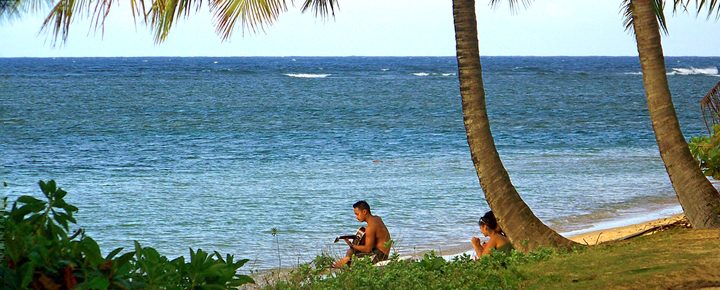
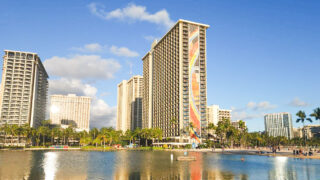
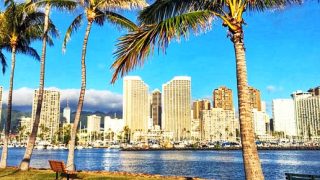
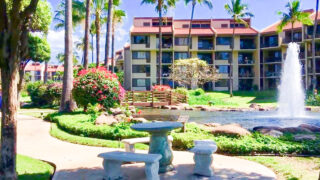
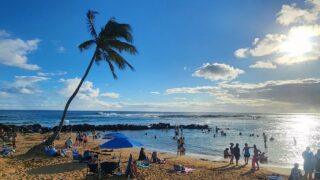


Sure you can! Just choose a rental outside of the resort district and we will always welcome you to Oahu! 🙂
Hello,
Are the rentals in the Ilikai still legal?
Natalie
I am a little confused about short term rental in Waikiki. We usually come for 10 days in January and stay in a condo 2 blocks off Waikiki beach. The owner notified us the other day that he will be forced to sell his property because of the new law. Reading some of the above information not sure what happens in a resort area. I understand the neighborhood out of resort area. Please clarify for me and can I rent for 10 days in Waikiki. Maybe the owner is confused. Hope this is still allowed . Thank you
Hi Gloria.
We are not in a position to speak to your rental specifically. If it is a legal short term rental you are fine, if it is not, then there may well be an issue. Legal rentals have a transient vacation rental number. This should be clarified with the rental manager/owner.
Aloha.
Go to Hawaii Property Rights Association on Facebook. Vacation rentals aren’t going anywhere. The govt’s actions are unlawful and not protected under the state and federal constitution.
In March I signed, in good faith, a rental contract for a house for a family reunion over Thanksgiving. Recently, after finding that the property had been removed from the rental site, I made inquiries of the site, the property manager and the owner as to why it was removed. I was told simply,”they [the owner] no longer wished to rent” but was assured that my rental contract would be honored. After a subsequent inquiry, I was told about a “new” Honolulu ordinance, effective August 1, restricting rentals like this had been passed but received further assurances that my rental contract would be honored. Assuming I rely on those assurances, what is a renter’s liability should an inspector/enforcement person shows up and determine that an illegal short term rental is in place? Thank you.
Hi Bill.
Sorry to hear about your issues and concerns. Unfortunately we don’t know the answer to your question. Our thought would be to first contact the county or the Honolulu mayor’s office to get pointed in the right direction.
Aloha.
Is the Aloha sprit dead? I try to spend a week in Oahu once a year but no longer feel welcome. I am now eighty three years old and not able to afford a thirty day vacation in Hawaii. What a shame.
Aloha! Thank you for this article, as it clarifies the new rulings. It is a fact that real estate has gone up dramatically on Oahu. However, I think it would be better not to throw out the baby with the bathwater in regard to short term rentals in residential communites! We depend on tourism to have a thriving economy. Why not crack down on out-of-state investors who don’t live on their properties at least a certain percentage of the year and who are not registered as Hawaii residents on their state tax documents (allowing for retired residents with more than one home). In addition, the tax dollars from any rentals in a town should be managed by that town so the citizens have a direct benefit and can make improvements and repairs to their communities as needed, making the space benefit tourists and residents alike. No one sees the impact of the vacation rental market in a town more than its residents. What resident would want to see their town and beaches deteriorate when the income from that is not readily available to address that impact? As residents, we enjoy the restaurants and the thriving shops, and we would love to also see the parks, beaches, and roads taken care of by those tax dollars. We could also have better control over how many rentals our community can support.
If I rent my property for 30 days or more do I need a TVU permit. If not how does someone know if it is legal or not?
Mahalo
Sherry
Hi Sherry.
Suggest checking with that department to be sure. By our read, it is not required.
Aloha.
Is this effective immediately?
Thanks for the information, Canceling our family reunion. Floridians are cheering.
What determines the “designated area” around the Turtle Bay Resort. We live in the community of Kawela Bay and it is right next door. Would that make our vacation rental legal for 30 day rentals?
We are also wondering how far Turtle Bay’s ‘resort area’ extends. This is really going to affect everyone who comes for the Triple Crown and the surf season as well as the businesses in Haleiwa.
We go to a Hawaiian island almost every winter. We use a timeshare. I don’t think this will affect us.
This is a tough decision for Hawaii. Restricting short term rentals will impact tourism to some degree, which will also impact tourism dollars flowing into the state. Hawaii is so dependent on tourism for its economy that this is a slippery slope. Laws of supply and demand will then raise prices during peak periods for those rentals (VRBO and hotels) in the impacted resort areas where short term rentals are still legal, impacting tourism again. HOWEVER, this should help a little bit to moderate the cost of housing outside of resort areas as owners can’t use short term rentals legally as income. So yes, tourism will be impacted, but perhaps moderated by dampening the insane increases of housing outside of resort areas. That said, I think this “all or nothing” approach is flawed as the article hints at, and a smarter approach is out there. Mahalo for the article! LOVE Beat of Hawaii updates and articles to keep me informed!
Hi Buddy.
Thank you!
Aloha.
Thank you for the latest info. How do we see if our Airbnb has a TVR? I have already paid for a rental for next year during peak season.
Hi Lori.
We’d suggest you contact the rental provider directly to inquire. Let us know how it goes.
Aloha.
As a tourist visiting from the UK I am concerned this may see an increase in accommodation prices due to less competition but, it does seem like the right thing to do for genuine Hawaii residents imho. After all, if you get people buying property simplybto rent out then doesn’t that inflate property prices in genuine neighbourhoods and make it more difficult for people living and born on the islands to get on the property ladder?
If that is true, then I’ll happily pay extra to visit this amazing part of the world and experience their fantastic hospitality again. Just might take a little longer to save for the experience.
Sad to see that Hawaii politicians are corrupt and only support big business. I finally made it back to Oahu after not visiting for 30 years and enjoyed staying in an AirBnB in Hawaii Kai. It made me feel like I was actually living on the island and not just visiting. I enjoyed hanging out with the locals and eating at all the restaurants not near the tourist areas. We have great respect for the islands, our neighbors, and would love to do this every year. I will not come back to visit if I have to stay in a hotel in a tourist area as it is not my idea of a vacation being next to noisy drunk hotel neighbors.
This makes me very sad. We have been travelling from Canada to Oahu’s west coast (Makaha) for 15 years and have never missed a year. We stay there to feel a part of the community, in fact we wanted to start to give back to the community by helping the homeless and the community by staying longer but this isn’t going to be the case any more. We will be taking our money and traveling elsewhere now. We will greatly miss this beautiful Island.
Can you please clarify if possible, does the law ban all rentals outside of resort areas even for 30 days or more? Do rentals of 30 days or more also have to have have a license? Thanks.
Hi Julianna.
From our read, rentals of 30 days or more are not a part of this change and thus would not be restricted.
Aloha.
Unfortunately I agree this is really about crony capitalism. I get there may be a need for some regulation, but this is about the hotel industry influencing politics. Although a brief reprieve, vacation hotels are a dying industry. Rather than adapt and overcome, they will go down fighting dirty and finally die. The real tragedy is for Hawaii, this is going to hurt tourism in the long run. I have been planning to take a full extended family vacation to Hawaii in the next couple of years. Financially if we had access to a home where we could house 7-9 people, make a home cooked meal occasionally and keep some groceries in the the frige it was doable. To rent hotels for 7-9 people, and eat out every night it just became out of reach. Guess I’ll start looking for other destinations.
Aloha!
Thank you for keeping us current on the ever changing landscape for those of us who are only able to visit Hawaii, rather than live there. In reading thru the recently passed ordnances, it looks as if our stays continue to be 30 days or greater than the STVR rules do not apply ? I can certainly understand the desires to bring back quality of life to the local neighborhoods. Mahalo for your feedback !
Hi Al.
Thank you. Yes, that’s how we read it as well. At least for now. 🙂
Aloha.
Short term vacation rentals are an amazing concept! What I love is drying in REAL neighborhoods and getting to meet local residents and make real friendships.
Staying in Waikiki at a hotel with hundreds of other tourists, going shopping and the beach with thousands of other tourists…not my idea of experiencing the local life. Now I suppose there might be some really cool locals working at the hotel you could get to know, but not so much in reality- yeah? Just not likely to happen…because you met at the hotel with hundreds of other tourists, and they see thousands and thousands every day. It’s a way to make ends meet, not meet people.
Staying outside the tourists zones, you get to ship local and drive local and eat and mix with locals. And you never know- maybe someone you meet will invite you to come back for a visit.
Can’t help but feel this is about hotel dollars and influence, not what is best for Hawaii. And as far as “overcrowding”…I’ve heard that for decades and just laugh. Umm…it’s an ISLAND you know! And it’s a beautiful place to live and visit. So it’s gonna get crowded regardless of banning short term rentals.
Missing the boat Hawaii. Just like the millions and millions of dollars being spent in Las Vegas because Hawaii won’t allow casinos in the state. This kind of “not in my back yard” thinking is only placating those who can’t see clearly.
Well said. The hotel rates will surely increase which will deter tourism for many people. Airfare is not cheap. Now, add higher hotel prices. Not a smart decision. Your are right about casinos…that would bring in mega bucks for the island.
This is terrible news. Big business buys off the politicians once again. The correct course of action would be to enact laws which regulate the vacation rentals with specified penalties for violations. This would prevent incompetent hosts from ruining neighborhoods, and preserve property rights at the same time. Instead, Hawaii just made the hoteliers even richer via “crony capitalism.” As a visitor to Hawaii, I am absolutely bummed that HI just severely restricted my options.
I think this is good for Hawaii, good for locals and good for visitors. It is not good for non resident investors. It will take time to stabilize but many States and Cities are finding that air BnB and others unregulated only really benefit Air BnB and their investors.
When will this go into affect? Does it affect rentals on the windward side also? I have a booking in 2020 at an abnb in Laie and was curious if this will affect it. Does the bill affect Maui also?
There are more long term rentals in Kailua than ever before, currently 286 according to Craigslist. Doing away with short term rentals will actually make it worse as most of our businesses, which thrive on the short term rentals, will cease to exist, making Kailua a less desirable place to live.
I’m from Kailua and I beg to differ. It’s become overpopulated and crowded. Kailua is a lazy town and that’s it’s appeal. My family has survived, and in fact, are very happy about the changes because of the disruption these short term rentals have done to our street. We can barely park our car, people park in our driveway and leave their litter all over the place. It’s disgusting how our little town has been bombarded. there needs to be a limit. We reached it long ago.
Kailua has been my preferred place to stay when visiting Oahu, and I would be quite sad if that weren’t possible anymore. I understand from a permanent resident’s perspective that STRs can become a nuisance, but don’t you think a balance can be achieved vs an outright ban in non-resort areas?
Back in the late 80’s, an informal study was done, which showed that the average stay on Oahu was for 3 days and then the visitors went to other islands. Now, the average stay on Oahu is for 7+ days. If alternative accommodations are no longer available, then Oahu will lose a huge portion of its tourist industry.
Absolutely. Plus I prefer to stay at Vacation Rentals outside tourist/resort areas. The North side of Oahu will now be too expensive for me with the rates any hotels charge😢
I visit a relative whose own accommodation is tiny ohana housing where she is caretaker. If there are not friends willing or able to share their places, then it is necessary to use air bnb for short term stays. Even the locals who own property need to find ways to make extra income and should not be denied the chance to do so. As a budget traveller I have had the best stays in local homes. They’ve enriched the Hawaii experience far more than any hotel would. I understand the problem of long term rentals vs. short ones, but not everybody who owns a condo and lives on the mainland can afford to spend all their time in the islands. It’s a dilemma for sure.
The whole point of BnB is to HOST someone in your home. That is not going away, anyone can host someone in their home and still make money. It’s those who abuse the system and treat airbnb like a rental portal, which wasn’t the original intention.
I am fairly low income. I am a caregiver for my mother and once a year my brother take over for me so I am able to get away for some much needed respite. If I needed to stay in a hotel, I wouldn’t be able to afford to go. I usually go with my daughter and grandchildren, so we rent a condo, split expenses and have at least one or two meals a day at the condo. We have a great, family time that hotel rooms don’t provide.
What about the rights of property owners who may have scrimped and saved to purchase a property for rental income? Shouldn’t they be able to rent in a fashion that maximizes their income? It is easy to think that short term rentals are being managed by some faceless investor on the mainland, but it could just as well be your aunties retirement fund. Keep making the islands less and less friendly, more and more expensive, and mainland visitors will take their visits and dollars to the Caribbean and central America which are often closer and have cheaper flights.
Fran – In response to Dave “It is easy to think that short term rentals are being managed by some faceless investor on the mainland, but it could just as well be your aunties retirement fund” In my experience both are true. I don’t know how it can be done but I think there should be a way to distinguish between, and assess lodgers-type-taxes, accordingly. ‘Short-term rental’ offers by an individual homeowner trying to pay the electric is not equivalent to an investor who has bought up real-estate for the express purpose of renting out multiple units.
This is a slippery slope. What happens when your Auntie moves to the mainland to be close to her sister? Does you Auntie then become a faceless mainland investor? What happens when your Auntie’s sister dies, and leave your Auntie another property in Hawaii? What if through inheritance, she accumulates half a dozen properties, but she uses the income to put her nieces and nephews through college? Your suggestion would lead to some sort of process where landlords must be judged on the worthiness of their needs before deciding what they are allowed to do with their property.
Actually, it should be a good think for long term rentals. Free up some units that were for vacationers only. And it’s also meant to preserve neighbourhoods. It’s not fun living in a area zoned residential when every other house is being used as a vacation rental- the noise, the constant coming and going of strangers. And it’s a good thing for revenue- too many illegal vacation rentals mean lost revenue from hotel tax and the homeowners not paying income or GE Tax. Yeah, for once our local governments put us residents first.
Hello
I have already booked 5 day rental in Oahu using VRBO. If the bills pass would you have any idea as to when they would go into effect. Wondering if you think I should be looking for alternative reservations (ie hotel, etc). Of course, any information you could provide would be greatly appreciated.
Thank you
Wanda
Hi Wanda.
First, check to see if it is a legal rental, in which case there’s no issue. We don’t know more yet.
Aloha.
Aloha,
Will this mean that the only short-term rentals on Oahu would be in Honolulu?
Thanks for all your great information!
Hi Susan.
We hope to have access to mapping for approved vacation rentals going forward. Certainly there will be other approved areas outside Honolulu.
Aloha.
Any idea how quickly this could happen? We have a unit rented through VRBO for September of this year, and am now worried it will be cancelled due to this bill. Or is it something that would not go into effect immediately. Thanks!
Hi Stacie.
Good questions, but we don’t have answers yet. We should know more soon. Check to see if your VRBO is a permitted rental and, if so, there’ll be no problem.
Aloha.
Will do! Thank you so much for responding. Have a great day!
Is there an available map showing which areas on each island are “approved” designated rental areas?
So what are the “ok areas” where short-term rentals will be allowed
Hi Terr.
We have not been able to locate a current listing of permitted vacation rentals but when we find one we will add it. Those should all, as far as we know, have a TVR number associated with them.
Aloha.
I can see the problem if they aren’t well-regulated, but these bills aren’t addressing that. This ultimately this looks like a loss for the small guy (both as renter and lessor) and a win for the large hoteliers. I bet it doesn’t take many dots to connect the hoteliers to the politicians’ pockets.
Aloha!
With a family of five, we depend on short term vacation rentals and not just in Hawaii. We need more room to make it enjoyable, and a full kitchen to make it affordable. If we are unable to find affordable vacation rentals we will not probably be able to afford our Hawaiian vacations. Standard hotel rooms are rarely an option with five especially now with three teens. Whatever they work out, I hope it does not take too many units off the market.
Thanks for all the information you provide in your newsletters. It is very helpful in our vacation planning.
Hi Tammy.
We get it. Complicated and global issues as travel paradigms shift. Vacation rentals won’t be disappearing, that’s for sure. This is largely about those that aren’t in designated areas.
Aloha.
We have an oceanfront condo on Maui that we’ve owned for 20 years, that we rent on VRBO when we aren’t there. The whole building is considered condo-tel, we pay a lot of taxes, collect and remit all the TAT and GE taxes. I don’t think anybody is trying to get rid of rentals like ours. Btw, we are middle class people who were just lucky enough to buy it when we did. So grateful!
Thank you for this wonderful website!
Hi Lanell.
Thank you!
Aloha.
It will destroy the diverse accommodations we have on the Hawaiian Islands. Allot of couples and families want to able rent out a whole house not a just a room or Hotel room. Cost is a big factor as well being a bale to stay in unique getaways and in areas that are not known ” tourist guidebooks” and helps the local economy.
How does regulation of short-term vacation rentals adversely affect long-term (6+ mos.?) rentals, please?
Hi Nick.
As far as we know, there will be no impact on long-term rentals.
Aloha.
A fairly large percentage of short-term rentals outside the resort zones are ‘unhosted’ entire housing units, meaning that the owners live offsite, often on the mainland, and have taken whole houses (or condos) off the market and converted them into mini hotels. For these people, these are second (or third) homes, so they are not being used to earn extra money to cover for high living expenses, that is just a convenient excuse that is being propagated by the industry and by people who try to obfuscate the issue in public. To make matters worse, some of these owners have bought up five, six, seven… sometimes as many as 38 homes and list them for several hundred dollars per night. These kinds of activities combined with more beneficial homeshares or hosted B&Bs have helped drive house prices in many of our residential and agricultural zones beyond sustainable levels. Santa Monica has successfully shut down many of these large commercial illegal hotel operations and it is encouraging to see that Hawai’i is finally slowly turning up the heat on what has become an unsustainable situation for neighbors, renters, and homebuyers.
Yes. The big IF on this entire controversy is IF the Counties will Identify the illegal STVRs and actually shut them down. Enforcement is the key. Otherwise illegal vacation rentals will continue. Will the Counties then leave up enforcement to the neighbors who subsequently have to go through the courts to get the illegal rental shut down? Seems very onerous way to enforce a County ordinance.
I prefer vacation rentals for our travels since I have food allergies and finding cooperative restaurants is a challenge.
Bea, I agree. The same thing has happened in Taos, New Mexico a tourist town. During the 2008/9 housing crash properties were bought up by ‘investors’. These homes and apartments now flood the market and demand top dollar rental fees making affordable housing ridiculous. There really should be sensible management of opportunistic investment (individuals or groups who don’t even live in the community). But don’t throw the baby out with the bath water! Some people who rent rooms, or rent a home while they live in a smaller place on the property do so to make ends meet. There is a big difference.